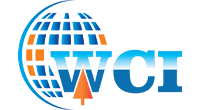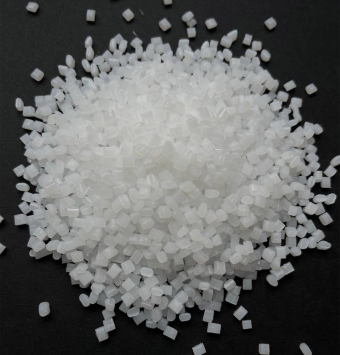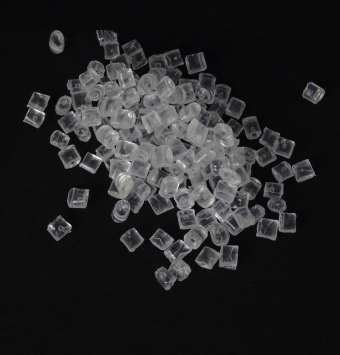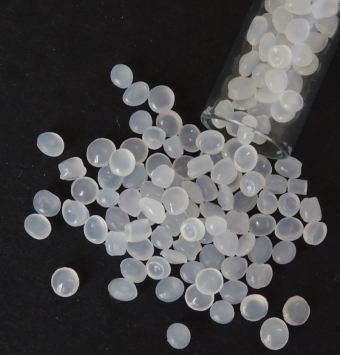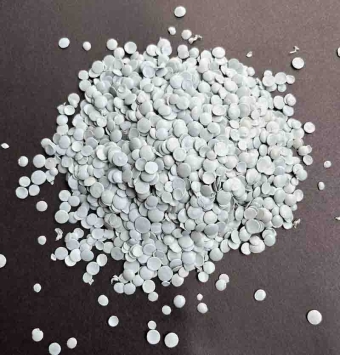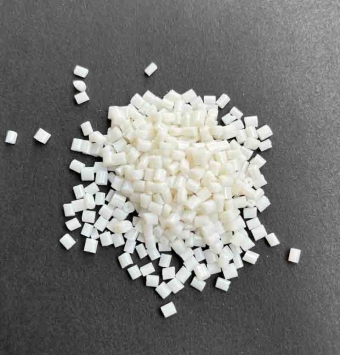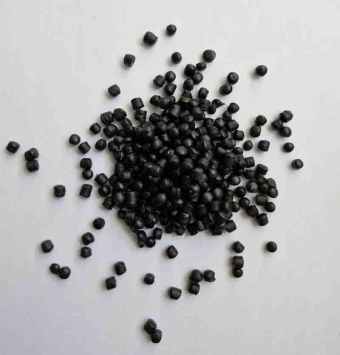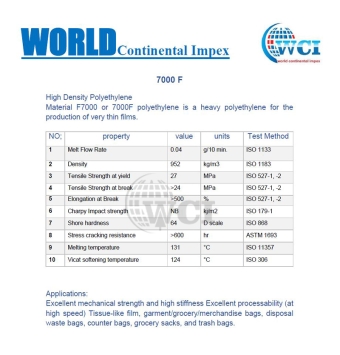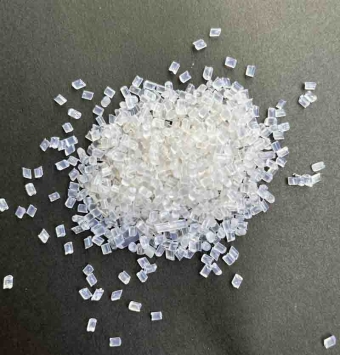What is plastic flakes? Applications, types and stages of production of flakes in the recycling industry
Plastic flakes are one of the most important raw materials in the recycling and production of polymer products. In today's world, where plastic consumption is increasing rapidly and environmental protection has become a particularly important issue, plastic recycling has received more attention than ever before. In this process, plastic waste is collected, washed, crushed and turned into small pieces. These small and heterogeneous pieces, called "Flakes", are a valuable material for reproducing plastic products.
What is plastic crumb?
Plastic crumb is actually small, shredded pieces of plastic that are obtained from grinding plastic waste. For example, PET beverage bottles, after being collected and separated, are converted into pieces with dimensions of a few millimeters in a grinding machine. These pieces are the crumb that can be washed, the color separated, and finally remelted.
An important feature of crumb is that it has a high contact surface, which is why it is easily washed and its surface contaminants (glue, labels, residual liquids) are removed. This increases the quality of the recycled material and allows it to be used in the production of new products without a significant loss of quality.
Types of Plastic Flakes
Flakes are divided into several categories depending on the type of plastic and the separation process. The most important types of flakes are:
Clear PET Flakes
This type of flakes is obtained from clear beverage bottles, mineral water and food bottles. Clear PET flakes are in the highest demand in the market due to their high purity and bright color and are used in the production of polyester fibers, packaging sheets and even new bottles.
Colored PET flakes
This flakes are produced from colored bottles such as those for household sodas or detergents. Due to its color, it is slightly less valuable than clear flakes and is often used in the production of dark fibers or opaque products.
HDPE flakes
It is obtained from heavy polyethylene bottles (such as shampoo, detergent and motor oil bottles). These flakes are used in the remanufacturing of industrial containers, pipes and plastic boxes.
PP flakes (polypropylene)
This type of flakes is produced from plastic parts such as fruit baskets, car parts or household appliances. After melting, PP flakes are converted into granules and used in plastic injection to make new parts.
Plastic flake production steps
The plastic flake production process includes several important steps, each of which plays a key role in the final quality:
Collection and initial separation
In this step, plastic waste is collected from various centers. It is then sorted based on polymer type, color, and degree of contamination. Proper separation at this stage is very important because mixing different polymers can reduce the quality of the final flake.
Initial washing
Plastic waste is washed before entering the mill to remove dust, dirt, and coarse contaminants from its surface. In some production lines, hot water and detergent pools are used for better cleaning.
Grinding
After washing, the plastics enter the mill and are converted into small pieces of a few millimeters in size. The output of this stage is the raw flakes.
Final washing and flotation
The obtained flakes are washed again to remove residual contaminants, adhesives, and labels. At this stage, the flotation method is used to separate light and heavy materials. For example, in PET recycling, PP and HDPE bottle caps and rings float on water and are separated from the PET flakes that settle in the water.
Drying
After thorough washing, the flakes are dried by centrifuge or thermal dryer to minimize their moisture content. Low moisture content is essential to prevent bubbles during melting.
Packaging and Storage
Finally, the dried flakes are packaged and ready to be shipped to granulation plants or product production lines.
Applications of Plastic Flakes
Plastic flakes are a high-value-added material used in various industries. Some of its main applications include:
Production of polyester fibers: PET flakes are the raw material for the production of synthetic fibers used in the textile and carpet industries.
Production of new bottles and containers: In many countries, transparent flakes are converted into new bottles after melting and refining (Bottle-to-Bottle process).
Production of packaging sheets and films: Flakes can be used to produce PET or HDPE sheets for food and industrial packaging.
Production of injection molded parts: PP and HDPE flakes are used in the automotive, home appliance, and industrial parts industries after granulation.
Production of pipes and profiles: Some flakes are used in the production of irrigation pipes and plastic profiles after mixing with new materials.
For more information, you can get our address and contact number through our contact page.
Related content:
Plastic raw materials/www.wci-polimer.com
Polymer raw materials/www.wci-polimer.com
